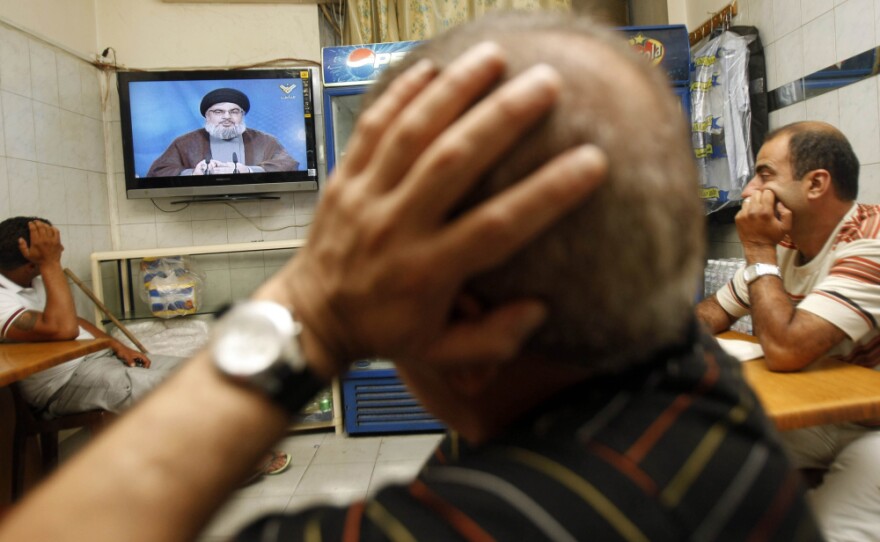The Arab Spring has largely bypassed Lebanon, but the new government may still be in jeopardy.
Growing unrest next door in Syria is seen as an imminent danger. It doesn't help that a key player in the new government is Hezbollah, the Shiite militia and party backed by the increasingly unpopular regime in Damascus. Nor does it help that four Hezbollah members are accused in the killing of a former Lebanese prime minister — a charge Hezbollah denies.
By the time a United Nations special tribunal issued indictments implicating Hezbollah in the 2005 car bomb that killed Rafik al-Hariri, it was too late for the pro-Western March 14 coalition that rose to power after the assassination. Hezbollah and its allies were in power and the cries for justice were echoing from Parliament's back benches.
But the rise of Hezbollah, whose militia is considered the strongest force in the country, is clouded by the indictments — although it has gone to great lengths to discredit the tribunal.
Mounting Tension
Hezbollah leader Hassan Nasrallah has lashed out, calling the tribunal a tool of Israeli and American intelligence agencies. Highly produced and heavily edited videos have appeared, alleging links between the tribunal's staff and the CIA, among other things.
Tribunal officials say justice is their primary concern, wherever the evidence leads. Nasrallah vows that the indicted men will never be arrested. A pro-opposition news agency reported that all four had left the country. And, in an apparent sign that the tribunal is considering that prospect, it has asked Interpol to distribute information about the four to member-country law enforcement agencies.
As the tension mounts, the attacks on the tribunal's integrity have begun to affect local opinion.
On Beirut's sunny seafront, juice vendor Abu Ali squeezes oranges for a customer and grumbles about the dearth of tourists this season. The stocky 63-year-old says many Lebanese want the army to be the strongest military force in Lebanon, not Hezbollah's militia. But he thinks that by going after Hezbollah, the tribunal has displayed a double standard.
"If the tribunal wants justice, the first one it should judge is Israel," he says. "After that, we'd be behind them, whoever they accuse."
Syria's Shadow
In all cases, Lebanon's politics will be decisively impacted by what happens in Syria.
Having managed to pull a government together, Prime Minister Najib Mikati is trying to finesse the situation, promising cooperation with the tribunal but avoiding a confrontation with Hezbollah.
Meanwhile, analysts say, the drama that could shake up Lebanon well before anything the tribunal might do is playing out next door.
"Lebanon has lived in the shadow of a very strong Syria for the last 40 years," says Paul Salem at the Carnegie Endowment's Middle East office, "and now Syria has entered a very deep crisis, from which it will not emerge as it was."
Salem says as Hezbollah's patrons in Syria fight for their political survival, Lebanon once again is forced to wait and see how the balance of power shifts.
"A new Syria will emerge. It might emerge as this regime very transformed, or the regime might fall, to be replaced by a completely opposite type of regime," he says. "In all cases, Lebanon's politics will be decisively impacted by what happens in Syria."
For the moment, Lebanese are waiting for news of more indictments from the Hariri tribunal, because few here believe the four Hezbollah members are the only ones under suspicion.
Copyright 2022 NPR. To see more, visit https://www.npr.org. 9(MDAzMjM2NDYzMDEyMzc1Njk5NjAxNzY3OQ001))







